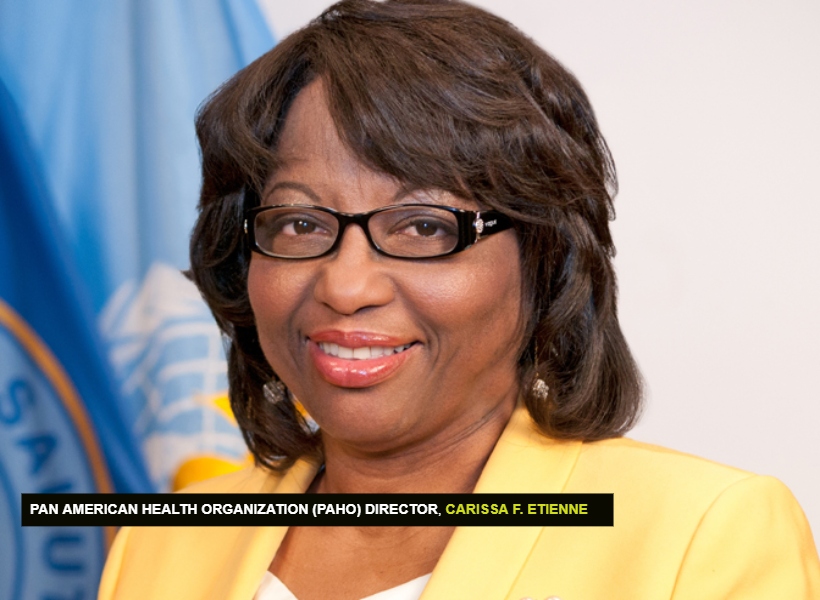The Pan American Health Organization (PAHO) Director Carissa F. Etienne is urging countries to rely on risk assessments and health data before lifting COVID-19 measures. Her call comes four days before Guyana’s President Dr Irfaan Ali, according to news reports, signalled his intention to “reopen the country”.
According to the State-run newspaper, Guyana Chronicle, Ali will “end all COVID-19 restrictions”. The publication noted that all public spaces, religious institutions, and facilities in Guyana are expected to be fully re-opened without COVID-19 restrictions”.
The government is yet to declare this publicly, although some high-ranking officials say that the announcement will be made this week after the president signs the necessary order.
Judging from the daily surveillance reports issued by the Health Minister, Guyana is currently seeing a slowdown of COVID-19 infections and deaths, with a significant reduction of active cases within the first quarter of 2022. The number of active infections has reduced to less than 400 from the staggering 12,000 recorded in January. Guyana is also edging closer toward herd immunity, with approximately 65 per cent of its adult population and 34 per cent of the adolescent cohort fully vaccinated.
The PAHO Director, in response to countries lifting measures, issued a word of caution. She said, “When places relax measures at the wrong moment, transmission spikes dangerously and we lose more lives”, urging countries to base decisions on risk assessments and health data, and to tighten public health guidance if cases go up.
“COVID-19 is likely to be here to stay. We must learn to live with this virus, and quickly adapt to new changes,” the PAHO Director added. Reflecting on the past two years of the pandemic, Dr Etienne said that the Americas has been hit harder than any other region in the world, with more than 2.6 million lives lost – half of all global deaths.
“This is a tragedy of enormous proportions, and its effects will be felt for years to come,” the PAHO Director noted.
She also warned that “the pandemic is still a threat today,” with countries experiencing record numbers of new infections during the Omicron wave, and the Americas accounting for 63% of new global cases in the first two months of 2022 alone.
“We all want the pandemic to be over, but optimism alone cannot control the virus,” she said, calling for countries to keep a “finger on the pulse.”
Countries must build on lessons from the past two years to prepare for quick action and adjust public health guidance if a new variant emerges or outbreaks happen – by ensuring continued surveillance and by making testing readily available even when transmission is low.
The PAHO Director also called for countries to address the inequities that have been exacerbated by the pandemic, highlighting that in Latin America and the Caribbean, 248 million people have yet to receive a single dose of the COVID-19 vaccine, particularly those in hard to reach, rural areas and underserved communities.
“Our wins against COVID-19 show us what is possible when we work together and use the tools, we know are effective,” Dr. Etienne said, referencing the advances made in the fight against COVID-19 in the past year, such as public health measures to slow the spread, safe vaccines and better treatment options.
Turning to the COVID-19 situation in the region, the Director reported that COVID-19 cases declined by 26% across the Americas in the last week and deaths also dropped by nearly 19%.
However, possible reductions in testing mean that the number of reported cases may not accurately reflect the situation in some countries.











